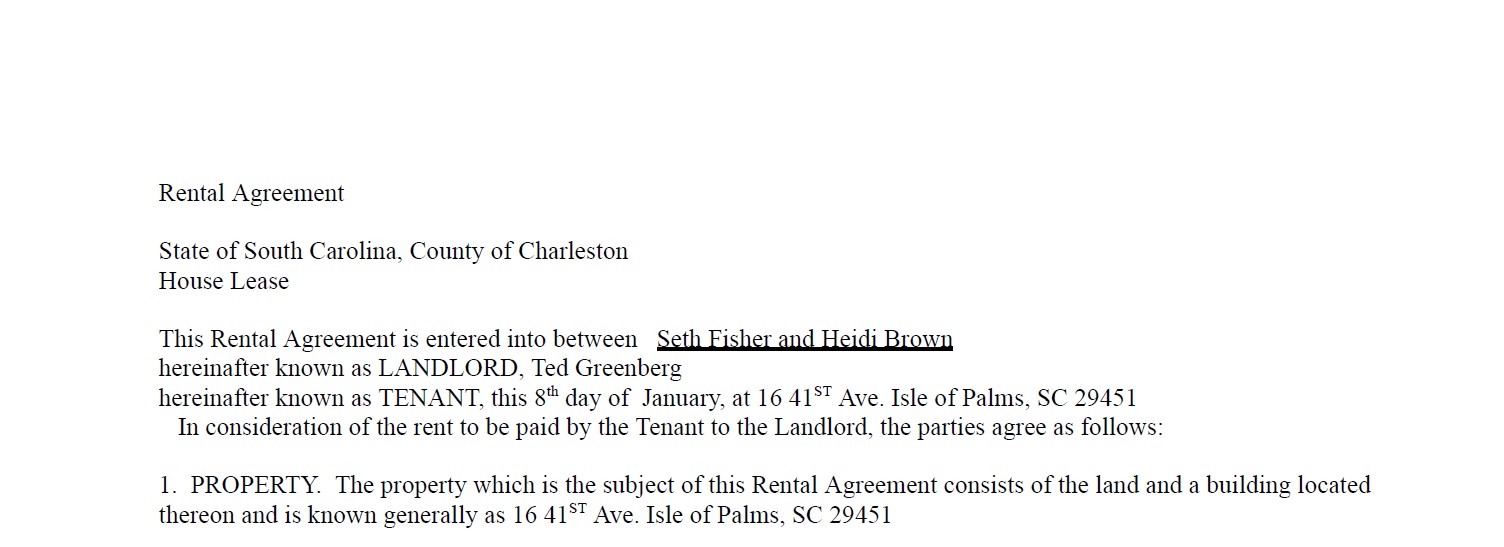- Report: #2902
Complaint Review: Insurance Companies - Nationwide
Insurance Companies
Nationwide, U.S.A.
Web:
N/A
Categories:
Age & Disability Discrimination By Insurance Companies
Age & Disability Discrimination By Insurance Companies
If the insurance industry were governed by common sense and fairness, its actions would follow two basic principles: the insurance companies would treat their policyholders fairly, honoring exactly the agreements that were originally specified and agreed upon; and those who regulate the insurance companies would make sure that this happens. This should be expected of any industry in which clients receive protection when a contract is signed.
The reality of the insurance business, however, is that these principles are basically nonexistent. Many companies and regulators have proven that to be so.
Take, for example, a recent class-action lawsuit against the Manufacturers Life Insurance Company (commonly called Manulife). In this lawsuit, nine plaintiffs-from a class with approximately 150,000 members-sought compensation for breach of contract, fraud, and negligence, among other issues. Manulife had sold these people policies that promised a "vanishing" premium within a set number of years: As long as the insured paid their premiums for the specified years, the policy would remain active for the rest of their lives without any additional payments. Unfortunately, all of these people were later notified by Manulife that their premiums would not cease at the previously promised time; for some, in fact, the premiums would go up after that point.
What happened? Manulife failed to keep its promises. What happened in the lawsuit? You do the math: Manulife took in billions of good early-1980s dollars from tens of thousands of policyholders and agreed to repay less than $600 million (in weak late-1990s dollars, no less) to the entire class. That left Manulife with a substantial profit from its fraudulent schemes, which effectively permitted the company to continue scheming. Manulife was assessed no punitive damages, which could have put a dent in Manulife's armor and deterred the company from such practices in the future. Instead, the company never even went so far as to publicly acknowledge its wrongdoing.
By no means is Manulife alone in its ability to get away with treating its customers in such an unfair and unprofessional way. A scandal recently surfaced in California in which insurance companies paid the state insurance commissioner, Charles Quackenbush, $12.8 million in "voluntary donations" in order to avoid being fined much more. These companies had mishandled the claims of many of their earthquake-stricken customers, but Quackenbush allowed them an out by "offering" the opportunity for them to donate money to help quake victims and research. However, no quake victims ever saw this money: it went to Quackenbush's own TV ads, his wife's debts, political consultants, and even his sons' football camp. The quake victims were no better off, but both the insurance companies and the commissioner had gained nicely from this cozy agreement.
It may be true that professional relationships should be pleasant ones, but insurance regulators have crossed the line into becoming genuine allies with those whom they regulate. Insurance companies get away with far too many injustices without regulators batting an eye.
Manulife receives no punishment for lying to its customers. California insurance companies pay their insurance commissioner for permission to mistreat policyholders. It does not stop there.
To give a less specific example, many companies have a practice of cutting the value of customers' life insurance policies in half when they turn 65. Currently, over 150,000 people turn 65 each year in the US, and the Senate Special Committee on Aging predicts that mby 2025 people over 65 will make up nearly a quarter of our country's total population. As the population ages, insurance companies with this type of practice siphon billions of dollars away from the elderly and toward their profits. Meanwhile, seniors' costs of living, and those of their families, continue to rise, and seniors are left with half their coverage. This is age discrimination, yet insurance companies continue to practice it with no repercussions.
There are laws against discrimination. There are also laws protecting the disabled, which insurance companies are seemingly permitted to overlook at whim as well. Another policyholder with Manulife was given a disability rider, which was to pay the premium on his policy in the event that he became completely disabled. When a car accident crushed this man's spinal column and paralyzed him, however, he discovered that only $33 per quarter was going toward the value of his policy, despite the fact that his premiums before that point had been $100 per month. The Americans with Disabilities Act of 1990 states clearly that disabled individuals are not to be treated in any sort of inferior manner. Add this law to the long list of those disregarded by insurance companies.
As Justice J. Mosk said in his dissent of the California Supreme Court case Moradi-Shalal v. Fireman's Fund Insurance Companies, "The question...is why this one industry is entitled to be above the law that applies to every other segment of society." This case, in 1988, took away the right of injured accident victims to see that their claims against the other party were handled efficiently and fairly by that party's insurance company. It took the California Assembly eleven years to get the governor's signature on a bill that would give back this right. Much opposition to this bill is still expected. To anyone who opposes this idea-to anyone who believes that the insurance industry's reliability can exist without written laws and their strict enforcement, for that matter-I say that Mosk's opinion is still as valid today as it was twelve years ago. Why should the insurance industry be permitted to act in a way that would be forbidden to any other industry?
Insurance companies should not be in the business of defrauding their customers, whether that be by selling confusingly-written policies, failing to uphold their end of those policies, or flat-out lying to customers. Should insurance companies fail to recognize this, it is the job of regulators to insure that such deception and injustice does not occur. When regulators refuse to carry out their important role, it is the job of everyone watching to see that this is not tolerated.
Caleb Leys is a bad faith insurance lawyer. He practices in California and is currently working on his autobiography. He can be reached via email at [email protected].
If the insurance industry were governed by common sense and fairness, its actions would follow two basic principles: the insurance companies would treat their policyholders fairly, honoring exactly the agreements that were originally specified and agreed upon; and those who regulate the insurance companies would make sure that this happens. This should be expected of any industry in which clients receive protection when a contract is signed.
The reality of the insurance business, however, is that these principles are basically nonexistent. Many companies and regulators have proven that to be so.
Take, for example, a recent class-action lawsuit against the Manufacturers Life Insurance Company (commonly called Manulife). In this lawsuit, nine plaintiffs-from a class with approximately 150,000 members-sought compensation for breach of contract, fraud, and negligence, among other issues. Manulife had sold these people policies that promised a "vanishing" premium within a set number of years: As long as the insured paid their premiums for the specified years, the policy would remain active for the rest of their lives without any additional payments. Unfortunately, all of these people were later notified by Manulife that their premiums would not cease at the previously promised time; for some, in fact, the premiums would go up after that point.
What happened? Manulife failed to keep its promises. What happened in the lawsuit? You do the math: Manulife took in billions of good early-1980s dollars from tens of thousands of policyholders and agreed to repay less than $600 million (in weak late-1990s dollars, no less) to the entire class. That left Manulife with a substantial profit from its fraudulent schemes, which effectively permitted the company to continue scheming. Manulife was assessed no punitive damages, which could have put a dent in Manulife's armor and deterred the company from such practices in the future. Instead, the company never even went so far as to publicly acknowledge its wrongdoing.
By no means is Manulife alone in its ability to get away with treating its customers in such an unfair and unprofessional way. A scandal recently surfaced in California in which insurance companies paid the state insurance commissioner, Charles Quackenbush, $12.8 million in "voluntary donations" in order to avoid being fined much more. These companies had mishandled the claims of many of their earthquake-stricken customers, but Quackenbush allowed them an out by "offering" the opportunity for them to donate money to help quake victims and research. However, no quake victims ever saw this money: it went to Quackenbush's own TV ads, his wife's debts, political consultants, and even his sons' football camp. The quake victims were no better off, but both the insurance companies and the commissioner had gained nicely from this cozy agreement.
It may be true that professional relationships should be pleasant ones, but insurance regulators have crossed the line into becoming genuine allies with those whom they regulate. Insurance companies get away with far too many injustices without regulators batting an eye.
Manulife receives no punishment for lying to its customers. California insurance companies pay their insurance commissioner for permission to mistreat policyholders. It does not stop there.
To give a less specific example, many companies have a practice of cutting the value of customers' life insurance policies in half when they turn 65. Currently, over 150,000 people turn 65 each year in the US, and the Senate Special Committee on Aging predicts that mby 2025 people over 65 will make up nearly a quarter of our country's total population. As the population ages, insurance companies with this type of practice siphon billions of dollars away from the elderly and toward their profits. Meanwhile, seniors' costs of living, and those of their families, continue to rise, and seniors are left with half their coverage. This is age discrimination, yet insurance companies continue to practice it with no repercussions.
There are laws against discrimination. There are also laws protecting the disabled, which insurance companies are seemingly permitted to overlook at whim as well. Another policyholder with Manulife was given a disability rider, which was to pay the premium on his policy in the event that he became completely disabled. When a car accident crushed this man's spinal column and paralyzed him, however, he discovered that only $33 per quarter was going toward the value of his policy, despite the fact that his premiums before that point had been $100 per month. The Americans with Disabilities Act of 1990 states clearly that disabled individuals are not to be treated in any sort of inferior manner. Add this law to the long list of those disregarded by insurance companies.
As Justice J. Mosk said in his dissent of the California Supreme Court case Moradi-Shalal v. Fireman's Fund Insurance Companies, "The question...is why this one industry is entitled to be above the law that applies to every other segment of society." This case, in 1988, took away the right of injured accident victims to see that their claims against the other party were handled efficiently and fairly by that party's insurance company. It took the California Assembly eleven years to get the governor's signature on a bill that would give back this right. Much opposition to this bill is still expected. To anyone who opposes this idea-to anyone who believes that the insurance industry's reliability can exist without written laws and their strict enforcement, for that matter-I say that Mosk's opinion is still as valid today as it was twelve years ago. Why should the insurance industry be permitted to act in a way that would be forbidden to any other industry?
Insurance companies should not be in the business of defrauding their customers, whether that be by selling confusingly-written policies, failing to uphold their end of those policies, or flat-out lying to customers. Should insurance companies fail to recognize this, it is the job of regulators to insure that such deception and injustice does not occur. When regulators refuse to carry out their important role, it is the job of everyone watching to see that this is not tolerated.
Caleb Leys is a bad faith insurance lawyer. He practices in California and is currently working on his autobiography. He can be reached via email at [email protected].





























